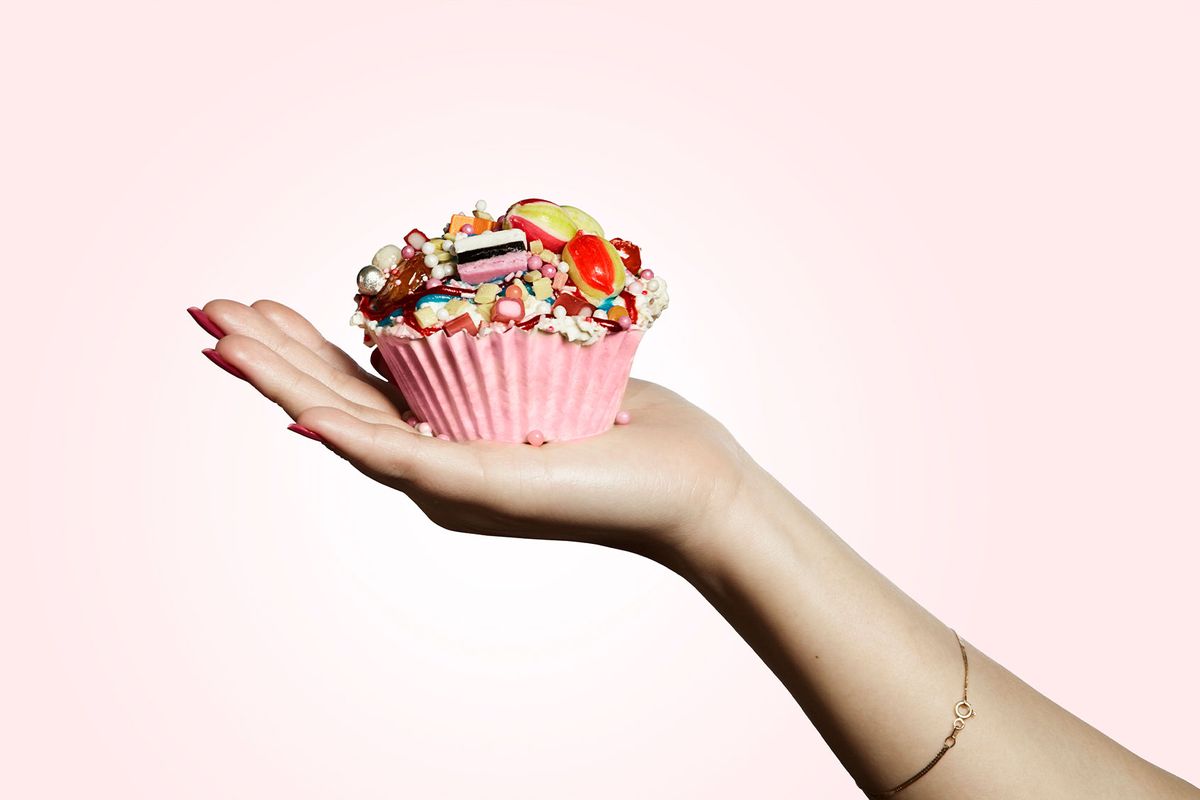I don’t believe in cheat days anymore, but sometimes I still miss them

I don’t believe in cheat days anymore, but sometimes I still miss them.
I realized this the other day while surveying an array of dim sum after I’d gone to Chinatown to meet some friends for brunch and left the ordering to them. Soon, the table was replete with steamer baskets of sticky rice wrapped in lotus leaves, golden-brown barbecue pork dumplings, half a crispy duck and delicate monkfish fritters.
As I prodded a platter of shumai with my chopsticks, I was overcome with a sense of warm contentment. There would have been a time that I would have had to plan for eating like this — and there would have been a time I would’ve felt like I had to repent.
Yo-yo dieting is all about highs and lows, and looking back at my religious upbringing, it’s perhaps not surprising that I thrived under the illusion of extremes, since that was the kind of universe I’d been taught God created. After death, you’d live, weightless and winged, forever in heaven or burn eternally in the pits of hell. On earth, women were either saints or sluts, something youth pastors seemed to delight in reminding the young girls in their religious care through a series of increasingly visceral metaphors: a loose girl was a shared bike seat, a piece of chewed gum, a scrap of tissue paper rubbed ragged by an army of glue sticks.
But objects are passive and I wanted some semblance of control before, as the church taught, my body went from belonging to my father to belonging to a husband.
Food could be controlled and I just so happened to become calorie-conscious at a time when the diet industrial complex was absolutely raging through pop culture. I was 11 years old when “The Biggest Loser” debuted; looking back on it now, the premise of the entire show is seeped in casual cruelty. Contestants were forced to weigh in shirtless — every natural curve, roll and fold beamed out to millions of American television sets — often after enduring eight hours of cardio to sweat out water weight.
I gravitated to the show because it, too, was an exercise in extremes. Even the language used with and by the contestants had a certain religiosity that felt familiar.
In the New Testament, there’s the story of the Temptation of Christ, which centers on Jesus going into the desert to fast for 40 days. While there, the devil tempts him three times, once by appealing to his ego, once with the world’s kingdoms and once with bread, to which Christ famously replied, “Man cannot live by bread alone.”
One recurring challenge throughout the seasons of “The Biggest Loser” was a series of temptation rooms. Contestants would be thrust into locked quarters that had been filled with their vices: slices of pepperoni pizza glistening with grease, chafing dishes of lo mein, piles of baby pink frosted cupcakes, double cheeseburgers, plates of fries. Would they rebuke the temptation? Or would they be forced to confess and then purge their sins through sweat?
By the time I was a teenager, I’d been a dancer for several years and had taken the lessons I’d learned on the show — as well as from obsessively pawing through women’s fitness magazines — and distilled them into a calculated science. Six days a week, my first two meals of the day often consisted of a mound of cottage cheese, warmed in the microwave until a little bubbly, and topped with a scoop of salsa. Compared to the sleeves of chalky low-fat Snackwells that dominated our family pantry, it almost felt like a decadence, but more importantly, with only two ingredients, it was easy to track just how many calories I needed to burn on the rickety treadmill in the basement.
I started dreaming of pancakes on Tuesday nights, my body begging for a little softness.
I eventually started to dream of food, including one recurring dream I had into my early 20s that saw me sitting in a booth of a diner I’d never visited before, eating a pillowy-soft pancake drenched in spiced syrup. That was it. That was the dream and I usually had it on Friday nights because Saturday was my cheat day — and it was euphoric. I gave myself an entire day to eat what I wanted, however much I wanted: bowls of steaming chicken and rice soup heaped with baby oyster crackers; bowtie pasta with peas, cubed ham and cream sauce; tall, cool glasses of orange juice; furtive slices of iced cookie cake.
I loved feeling full, but eventually, I came to dread it, too. Sure, food could be controlled, but the question became, could I control myself around it? The fear of my mask slipping became too much. I stopped having cheat days, choosing instead to ride the high of elongated fasting. I started dreaming of pancakes on Tuesday nights, my body begging for a little softness.
It took a really long time to unfurl my conflicted feelings of Spartan rigidity and hidden, sensual delight surrounding food. It took even longer to heal the spiritual wounds that had made such an internal struggle possible. I’m not sure that I’ll ever be completely healed, but surveying that table of dim sum I realized that I was closer than I’d ever been.
Sometimes I miss the thrill of anticipation. For now, I’m embracing feeling full.
Read more
about this topic

